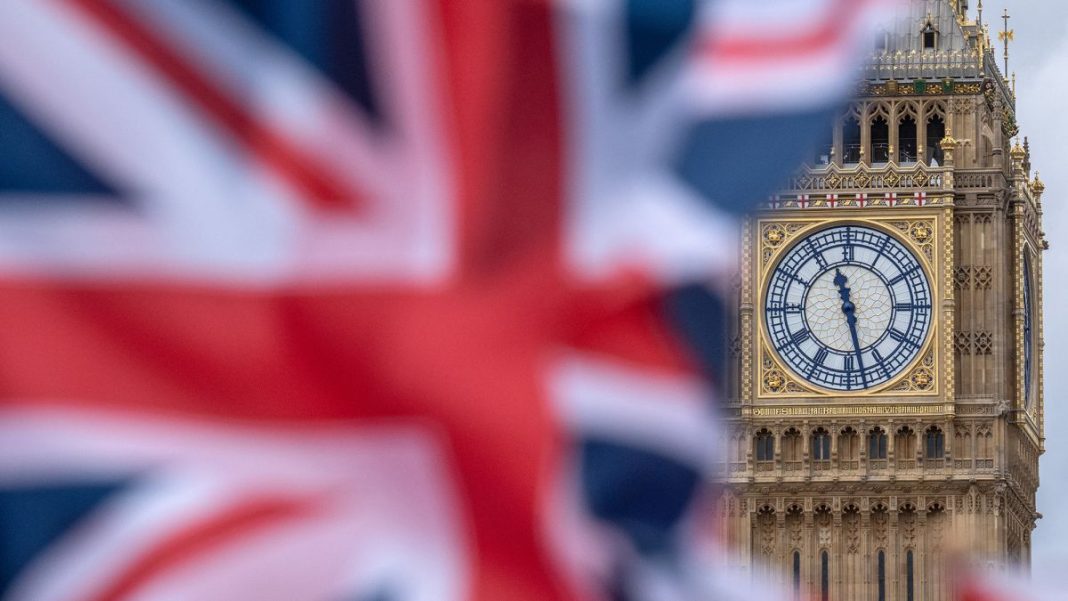No matter how strange it may seem, but in terms of the desire for change, Britain reminded the Soviet Union of the «perestroika» era. Then people tired of the monopoly of the Communist Party, stagnant economy, social injustice resolutely demanded change. As the lines from the famous hit song by Viktor Tsoi, a popular poet and singer at the time, read: “…change, our hearts demand change, we are waiting for change.”
In the UK general election, the hearts of Britons enraged by the leadership crisis, the Conservatives’ inept economic policies that had provoked rising living costs, record high taxes and inflation, and a series of political scandals by the top brass also demanded change. The demand for change was picked up by Labor, who made it not only an official slogan but also the meaning of their election campaign. Their calculation turned out to be absolutely correct. Voters sent the Conservatives into opposition with the worst possible result for them. Labor was one step away from a true “supermajority”, winning only a few seats less than Tony Blair with his record 1997 result, and, in fact, took control of 10 Downing Street. The UK is frozen in anticipation of the promised change.
In this piece Ascolta summarizes the results of the parliamentary elections in Great Britain, as a result of which the Conservatives were forced to go into deep opposition and the Labor Party came to power. The piece also examines the main reasons that provoked the political and economic crisis, and analyzes possible scenarios for further developments.
This Content Is Only For Subscribers
Fateful decision
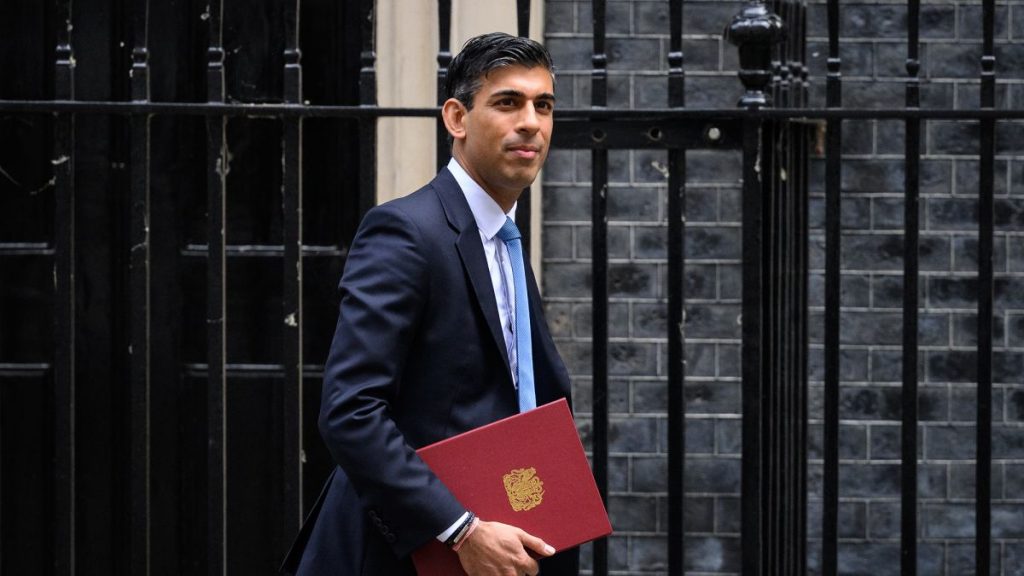
According to the legislation of the UK parliamentary elections were to be held, no later than January 28, 2025. Already since January 2024, the leader of the Conservatives Rishi Sunak has repeatedly stated that the general election will be held “in the second half of this year”. The ruling Conservative Party, after 14 years in power, was suffering a real electoral disaster, and therefore most experts had a suspicion that Rishi Sunak would try to delay the moment of parting with the residence at 10 Downing Street. On May 22, however, Rishi Sunak, standing in front of the porch of his residence, announced the date of the general parliamentary elections, setting the vote for July 4. He said his tenure as prime minister had proved that the Conservative Party had “a plan and a willingness to take the bold action necessary for Britain to prosper.”
“I am confident in what we can do in the future,” the politician said, assuring that “Labor has no plan” and “the future with them may be uncertain.” Sunak’s decision shocked not only the British establishment and his fellow party members, but also his opponents. It is learned that a week before Sunak’s decision, Labor had informed its staff that they might take a leave of absence in July as a summer election looked unlikely.
The fact that Rishi Sunak’s decision was spontaneous was also indicated by the fact that British Foreign Secretary David Cameron was on a visit to Albania and Defense Secretary Grant Shapps was about to leave on a trip to the Baltic states. As a result, one had to urgently interrupt the Albanian voyage and fly to London for a surprise cabinet meeting, while the other had to postpone a visit to allies who were eagerly awaiting the meeting.
It is likely that the dynamics of British electoral preferences, which were not improving for the Conservatives, led Sunak and his entourage to believe that things would not get better, but would only get worse. As a key factor that influenced the prime minister’s decision was the news about the slowdown of inflation to a three-year low. At the end of April 2024, price growth in the United Kingdom slowed to 2.3%, while back in March the figure was 3.2%. It is the reduction of inflation, which reached an all-time high by the end of 2022, Rishi Sunak called his main goal as head of government when he took office in October 2022.
Amidst the negativity plaguing the Conservatives, Sunak apparently tried to find some salvation straw. However, as one pill does not save from the treatment of a serious disease, so the opinion that the reduction of inflation will significantly affect the electoral mood of the British was only an illusion, which confirmed that Sunak at heart remained an investment banker, not a politician. Besides, Rashi Sunak probably forgot about one historical fact: the July vote was the first time since 1945 when the Labor Party convincingly won the parliamentary elections in Great Britain and resigned the Conservatives together with Winston Churchill….
A predetermined defeat
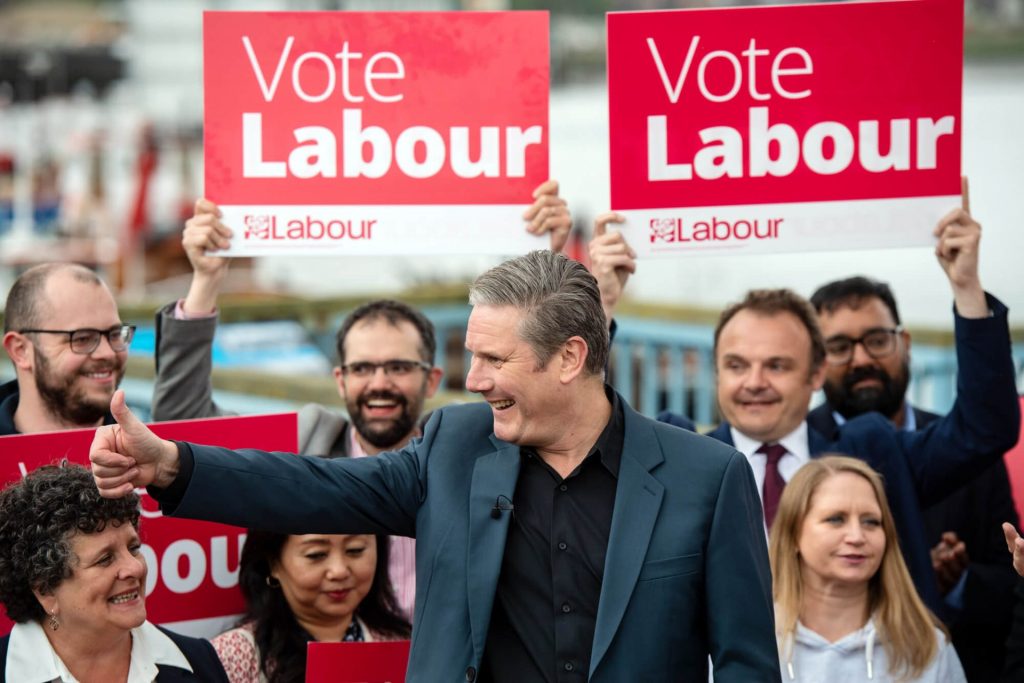
Expert predictions that said the Conservatives would finish with the worst result in their history miraculously came true on July 4. The Conservatives did indeed suffer a real fiasco, winning just 121 seats, 251 fewer than the 2019 election result. To add to that, a number of prominent Conservative politicians, including former Prime Minister Liz Truss, Defense Minister Grant Shapps, Justice Minister Alex Chock, Education Minister Gillian Keegan, Culture Minister Lucy Fraser, Transportation Minister Mark Harper, House of Commons Leader Penny Mordaunt, and Attorney General Victoria Prentice were simply “carried” out of Parliament by voters in single-member constituencies.
Of course, it is unlikely that the Conservatives would have suffered such a crushing defeat if all their mistakes had been down to Sunak’s miscalculations alone. For 14 years, the British people have accumulated much more serious claims to the party, which concerned almost all spheres of life: from the economy to the problems of illegal migration. Therefore, entering the election campaign, there was a feeling that the Tories did not realize the scale of the disaster.
Traditionally, an election campaign in Great Britain is a peculiar process filled with obligatory rituals. Party leaders, activists and journalists all board brightly colored party buses together and embark on an extensive tour across the country. At each stop, politicians interact with voters and encourage the public to vote for them. To appear closer to the people, a mandatory part of these stops is the politicians’ attempts to “compete” with each other to see which of them is best at doing everyday things ordinary Brits do, like playing soccer with the kids or pouring beer from a keg. Among other things this year, for example, Rishi Sunak tried to feed a flock of sheep, but they all ran away from him, as did Conservative Party voters.
It is worth noting that the election campaign for the Conservatives did not go well almost from the start. During the announcement of Sunak’s decision to call the elections for July 4, heavy rain began to fall in London. And this in turn gave rise to a lot of jokes about the “drowned” prime minister and the comparison of the Conservatives with the Titanic. The first week of the race only reinforced the feeling that the captain of the “ship” is leading the party straight into an imaginary iceberg. Panic gripped the Conservative Party, and many of its influential members began to abandon the sinking ship.
A painful blow to the Prime Minister was dealt by Telford MP Lucy Allan, who abandoned the idea of re-election and supported Reform Party candidate Alan Adams in her constituency instead of Conservative representative Hannah Campbell. Ms. Allan was immediately expelled from the party, but she said she quit on her own. Before that, back in March, the reformists were backed by Lee Anderson, former vice-chairman of the Conservatives. Former British Environment Minister Zac Goldsmith, who resigned in 2023 because of Rishi Sunak’s “disinterest” in environmental issues, also added to Sunak’s problems.
In addition, as recognized by the British media, the Conservatives’ campaign was hard pressed by the fact that many prominent politicians lost faith in the possibility of winning the election and refused in advance to fight for mandates. For example, Michael Gove, who has held ministerial posts with few interruptions since David Cameron’s premiership, confirmed his refusal to run. In total, decided not to try to get into the new convocation of the House of Commons under a hundred Conservatives. The party faced an acute shortage of strong candidates capable of winning.
In this situation, Rishi Sunak decided to demonstrate to everyone that he is not going to give up and, moreover, will regain the lost sympathy of voters. However, he made the first step towards this in his own contradictory manner.
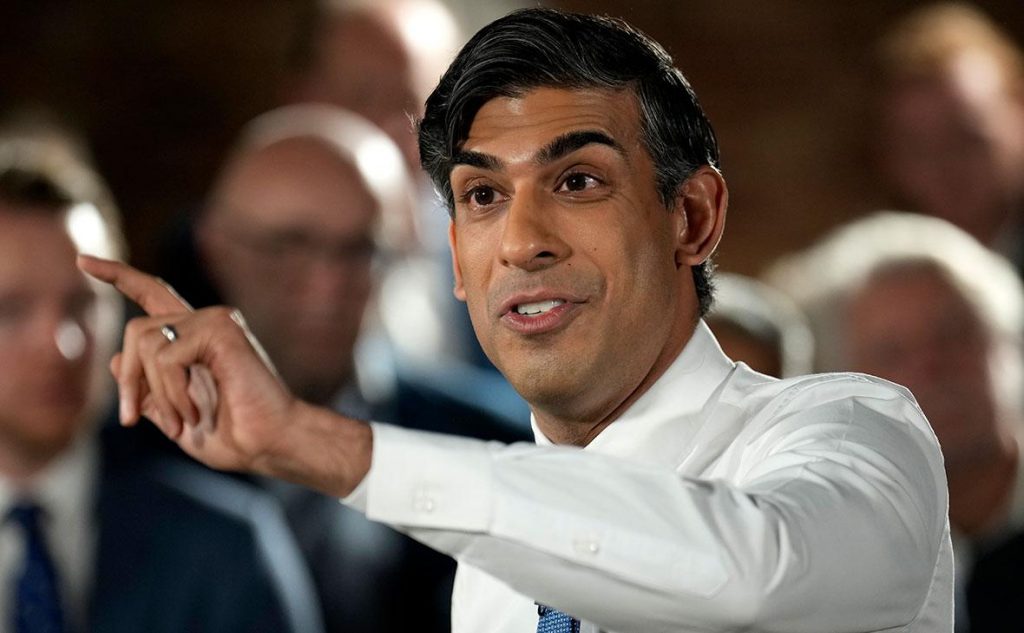
The Prime Minister came up with an initiative to return universal conscription, canceled back in 1960. According to him, 18-year-old Britons and British women will have to serve a year in the army or cybersecurity forces. Those who dislike the idea of being in the armed forces will be able to take up alternative service in the form of weekend volunteering in the police, fire department or health service. Mr. Sunak believes that this measure will strengthen the “national spirit”, because “being British is more than just a queue at passport control”.
The prime minister’s proposal surprised many, and Mr. Sunak was immediately bombarded with clarifying questions. At the same time, representatives of the Conservative Party anonymously tried to answer the public’s concerns, but they did not come up with a coherent line. Some Conservative politicians reacted openly and sharply to Rishi Sunak’s initiative. Thus, the Minister for Northern Ireland, Steve Baker, called the introduction of conscription a policy invented by the Prime Minister’s advisers and imposed on the candidate. Baker then went on vacation to Greece instead of campaigning in his constituency.
Against the background of party scandals in June, the British were pleased with the happy news. According to data released by the Office for National Statistics, inflation in the country fell to 2% in May from 2.3% in April. But more importantly, it finally fell to the Bank of England’s July 2021 target, marking a sharp decline from a 41-year high of 11.1% in October 2022. Rishi Sunak was quick to interpret these statistics in his favor: “When I became Prime Minister, inflation was 11%. But we took bold action. We stuck to a clear plan and that’s why the economy has turned around now,” he said, modestly omitting that his predecessor and Conservative Party member Liz Truss, whose fiscal policies caused a sharp rise in the cost of government borrowing, was behind the previous inflationary peak.
With inflation falling, Britain’s economy, which had fallen into recession by the end of 2023, began to recover in the first three months of this year and Sunak promised to cut taxes for workers by £17 billion ($21.70 billion). The Prime Minister partially kept his promise to rule “according to the laws and according to the heart” of M. Thatcher, but the reduction of the mandatory contribution of employees to the social insurance fund from 10 to 8% in the spring budget of Finance Minister Hunt, experts associated not with deep fiscal calculations, but with the desire to attract the electorate. In addition, the politician failed to fulfill his promise to reduce the national debt. Thus, the dream of repeating the economic success of the “Iron Lady” remained a dream for Rishi Sunak, although he has something to record as an asset – the politician did not make any failed decisions in the economy.
In addition to solving economic problems, Rishi Sunak faced another one – migration. He inherited this problem from his fellow party members, but things have only gotten worse in the year and a half that the politician has been in charge of the cabinet. At the end of 2022, net migration reached a record high of 764,000 people. In addition, the problem of illegal migration, exacerbated by Brexit, was inherited from Sunak’s previous government. Leaving the EU also led to the termination of the Dublin Regulation in relation to the UK – the legal basis for the return of migrants to the other side of the English Channel was lost.
At the same time, the Euroscepticism of the current prime minister’s predecessors tied London’s hands: no alternative to Dublin was agreed with Brussels. The consequences have fallen precisely on Sunak. To tackle the issue of illegal migration, the Prime Minister proposed the “Rwanda Plan”, a bill designed to open the way for deporting asylum seekers to Rwanda. The scheme to take illegal migrants to Rwanda, according to the government, should deter asylum seekers from making the dangerous journey across the Channel by boat and reduce migration pressure on Britain. For its cooperation, Rwanda would receive funding to house deported people. However, the bill has drawn criticism from human rights activists and the European Court of Human Rights (ECHR). In response, Rishi Sunak threatened Britain’s withdrawal from the ECHR, arguing that such a move is necessary to wean the country away from illegal immigrants who are appealing to European justice.
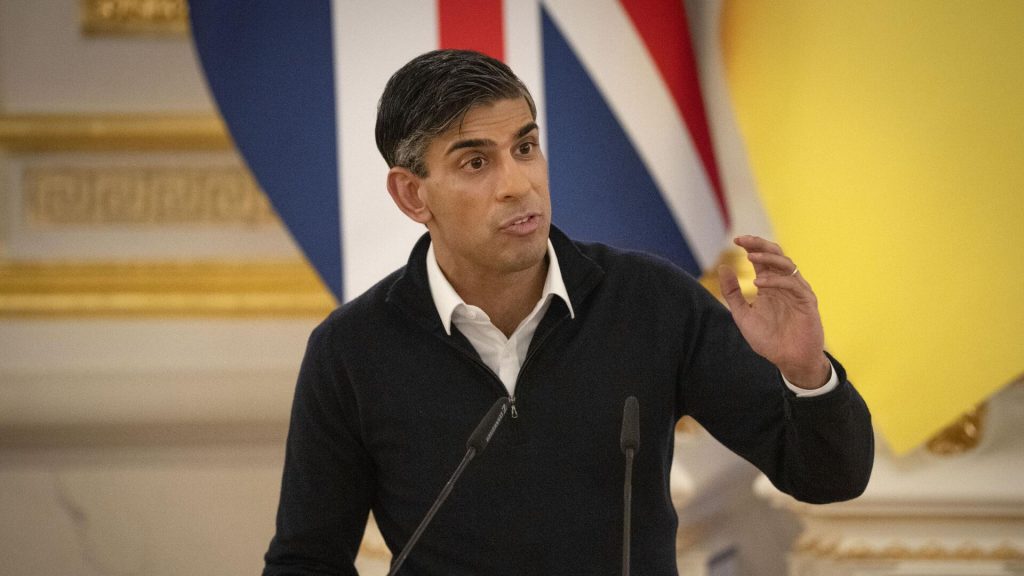
Another “sore point” for Sunak is the National Health System (NHS) – the pride of the British people and the main asset of the post-war “welfare state”. Today, its main embodiment is the queues in English hospitals. There is a shortage of qualified medical personnel in the country. Not least of all, the situation has been negatively affected by the Brexit, which took place before Sunak: the arrival of auxiliary medical personnel from Europe has almost completely stopped, and the EU exit has also had a strong impact on the dental services market. In January 2023, in a bid to change the situation, the Prime Minister pledged to reduce the average waiting time for a medical appointment, which had been steadily increasing until then. The denouement came in February 2024 when, in an interview, the prime minister admitted that he had failed to deliver. Without making any mistakes, Rishi Sunak still failed to find options to solve the problem.
Sunak was not without mistakes during the election campaign either. His behavior at a commemorative event at the memorial to the kingdom’s fallen soldiers in the French commune of Ver-sur-Mer on June 6 was another cause for criticism. He attended along with King Charles III and his wife Camille, as well as French President Emmanuel Macron. Sunak did not attend the main ceremony at the Omaha Beach Allied Landing Sector, unlike Macron, US President Joe Biden and German Chancellor Olaf Scholz. According to media reports, Sunak removed himself early to give interviews as part of his campaign. Instead of political points, he received another portion of criticism, amid which he had to apologize for his act.
Another scandal awaited the Conservatives over election betting. More than five people from the Conservative team, including the wife of the campaign manager, several MPs, the Prime Minister’s private secretary and a police officer from his security detail, found themselves under investigation by the Gambling Commission. They are alleged to have taken advantage of early access to information and bet money on July 4 before Rishi Sunak officially announced the date of the poll. It is worth noting that Labor also found an MP who participated in gambling, but he bet on losing his seat in the election. This was the final nail in the Conservatives’ coffin, which went into the “collection of scandals”, along with Boris Johnson’s drunken orgies at 10 Downing Street during the quarantine over COVID-19.
The outcome of the election for the Conservatives was not only predetermined, but natural. British voters have not forgiven the Conservative Party for their lackluster economic policies, scandals and alienation from the people. By and large, one of the main motives for voting against the Tories was a great desire to punish them. And the voters succeeded brilliantly. Perhaps a faint consolation for Rishi Sunak’s party can be found in the fact that the Tories managed to avoid a complete rout by dropping to double digits in their representation in Parliament.
“I’m sorry,” said Sunak, conceding defeat. “The British have delivered a sobering verdict,” he admitted. “I take responsibility for the defeat.” As British media noted, even before Starmer’s Labor victory was confirmed, mutual recriminations had begun in the Tory camp. After fourteen years in power, the party now fears that they will be out of power for many years. And the future of the 300-year-old party will once again be in doubt, as they are squeezed on the right by Brexit architect Nigel Farage and his party team, with little room left in the center occupied by Starmer. However, having gone into official opposition, the Tories will have plenty of time to rethink what happened and realize where they really belong.
Labor: victory without love
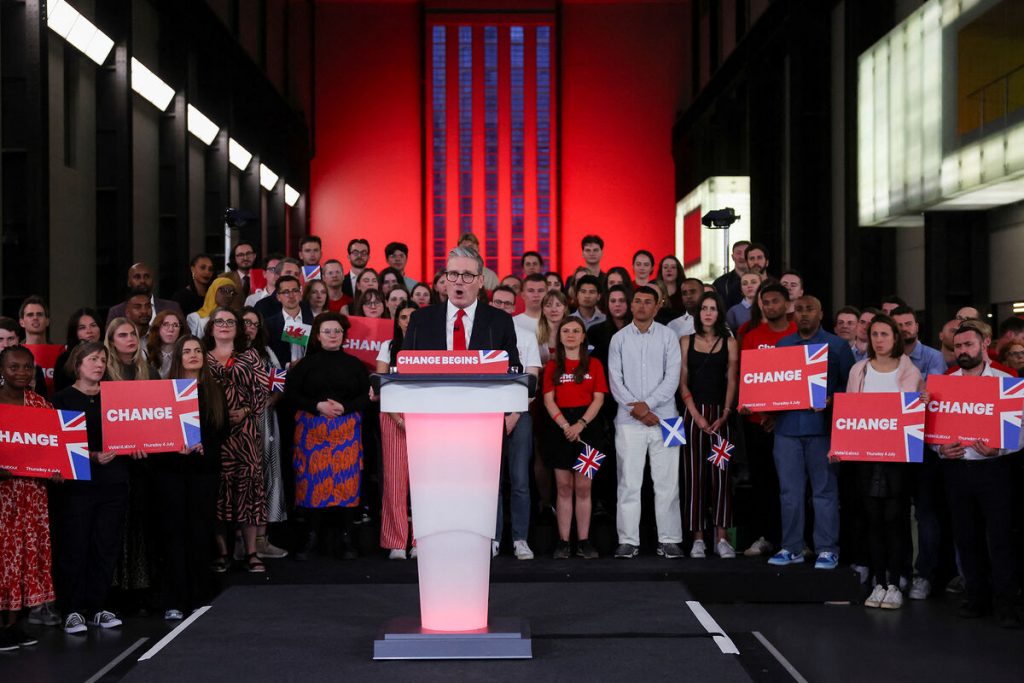
Elections cannot change the country in a single moment. They only reveal changes that have been hidden or ignored. Therefore, the Labor Party’s victory only brought to the political surface the underlying problems that had been accumulating in the country. The Labor Party’s slogan “time for change” resonated with voters, and Labor won a landslide victory with 412 seats in Parliament and a mandate for the next five years. The party drew the right conclusions from its crushing defeat in 2019, which many saw as a personal judgment on then leader Jeremy Corbyn.
There were many reasons for the failure. These are the unpopularity of the then party leader Jeremy Corbyn, who failed to retain the support of the traditional Labour electorate, the implausibility of the election program, which contained slogans like “free broadband” for everyone. And an unclear position on Brexit – the Brexit deal was going to be renegotiated with the EU and then put back to a referendum. Under the pressure of criticism, Corbyn resigned in 2020, and the post of party chairman was taken by Keir Starmer, who, in fact, began to build the party from scratch.
No one had much faith in him. Faceless, boring, “not Tony Blair”, a relative newcomer, experts said. However, Starmer showed iron character in his efforts to change the party. He embarked on reforms: he strengthened discipline and cleansed it of Corbynistas, improved fieldwork, cleared the party of suspicions of anti-Semitism and adjusted the Labor agenda on a range of issues. In particular, he began to speak openly about his patriotism, which previously party leaders had not given much importance, and the need to strengthen the country’s security – for example, Starmer advocates increased defense spending and defends the right of Britain to possess nuclear weapons.
In addition to catchy slogans like “stop the chaos” and “turn the page,” Labor’s election manifesto includes more familiar promises for the left-wing party. Among other things, Starmer and his supporters intend to raise taxes on the wealthiest categories of taxpayers, from private schools to oil companies, build one and a half million new apartments and increase green energy production. Of course, the plans also include bringing order to the health and education systems and fighting crime. As Labor boldly declared, their program is “a serious, fully costed and fully funded plan for change.” And that, they added, is the key difference from the plan unveiled the day before by the ruling Conservatives, whose key point was a massive tax cut.
For years, Labor has been seen as a party that relies mainly on tax rises to fund public spending. In the run-up to the vote from the camp of rivals even sounded allegations that after the coming of the opposition to power, the inhabitants of the United Kingdom awaits an imminent increase in taxes immediately by £ 2 thousand. Labor, of course, denied this, and even pledged to freeze the threshold of spending on national insurance and the level of income tax until 2028. As Starmer promised, stimulating economic growth will be based on something else entirely: getting businesses to finance many projects, developing infrastructure, and transforming the jobs market. More centrist than leftist, the program has won the approval of voters, who will soon have to find out how realistic it is. But Labor included many elements typical of right-wing parties not only to knock the ground out from under the Conservatives’ feet, but it is also because they are under pressure from the right from another major player in the last election, the Reform United Kingdom party.
According to the laws of the political-technological genre, Labor conducted the campaign, keeping in mind its main commandment – do no harm, focusing on counterattacks against the initiatives of their opponents. And it has to be said that they handled this brilliantly. As the campaign progressed, feeling confident, they even decided to be candid with voters. Thus, Keir Starmer said that he would not be able to fulfill some of his promises made back in 2020, during the race for party leadership. According to him, the Conservatives have brought the economy to a standstill, so the new government will have to make sacrifices. In particular, he had previously advocated the abolition of university tuition fees, but now assured that “given the damage to the economy, especially Liz Truss, this is no longer possible.”

Another question that has worried many is what will Labor’s foreign policy be after July 4? Their foreign policy priorities will not differ from the Tories in everything, but still. After leaving the EU, London failed to conclude a favorable agreement with Brussels. As a result, the British economy has stagnated and poverty in the country is only growing. During the election campaign, Starmer deliberately avoided the topic of Brexit, and only once “cornered” said that he would never cancel it. However, realizing how much Britain has ultimately suffered from the break with the EU, he outlined new foreign policy contours for himself.
First, restoring normal relations with Germany, which had been “admirably” soured by Boris Johnson. It is her that he sees as a key ally in the EU. True, this may cause a negative reaction from France, in particular President Macron, but Starmer is trying to establish contacts with him as well. In short, he will look for allies wherever he can find them. Be it Polish Prime Minister Donald Tusk or Spanish Prime Minister Pedro Sanchez.
Second, Starmer will try to capitalize on his victory and open a new era of relations with the EU. The question remains to what extent the new British government will stick to its demand to deal with EU member states only bilaterally, and to what extent it will engage directly with the European Commission. And if all goes well, we can expect a UK-EU memorandum of understanding to be signed in 2025. Almost immediately after taking office, Sturman successfully managed his new role on the international stage – at the annual NATO summit in Washington, D.C., where he had a great opportunity to please world leaders, take part in the alliance’s “family photo” and hold his first bilateral meetings with U.S. President Joe Biden, important European colleagues and even Turkish President Recep Tayyip Erdogan.
Of course, the summit was also an important one for Ukraine, which needs to speed up arms deliveries. Much to Kiev’s relief, the new British government has already made it clear that it intends to follow its predecessor’s policy toward Ukraine. Shadow Secretary of State for Foreign Affairs David Lammy and shadow Secretary of State for Defense John Healey were in Kiev recently to reiterate their “ironclad” support. “If there is a change of government after the election, Britain’s determination to support Ukraine, oppose Russian aggression and prosecute Putin for his war crimes will not change,” Healey insisted. Such ideas were more characteristic of the Conservatives than of Labor – the same Jeremy Corbyn in 2022 called on the West to stop supplying arms to Ukraine. However, communication with Zelensky also led to the first diplomatic “gaffe”, for the solution of which it was necessary to make an official statement that Zelensky did not quite correctly understand Sterman in the context of authorizations for the use of British missiles on Russian territory.
Summing up the results of the election, both the British and international press unanimously admitted that the success of Labor was a “victory without love” and the main goal of the voters was not to bring the Labor Party to power, but to punish the Conservatives. It is therefore difficult to measure the extent to which the election results express positive support specifically for Labor and its leader. Judging by the numbers, despite the fact that Labor, won twice as many seats in Parliament compared to 2019, the number of votes did not add much (only 1.6% more).
In real terms, that’s about 9.7 million votes. Corbyn got 10.3 million votes in 2019, and what to speak of Tony Blair’s result in 1997 with 13.5 million (418 seats). And it shows that behind Labor’s victory is more likely to be a weak turnout, and the apathy of Tory voters: those simply did not reach the polling stations. Under such circumstances, the boring and not very convincing campaign of the center-left was enough to get a supermajority. However, Labor will not have to rest on its laurels, as it has already felt the breath of the “third forces” at its back in these elections.
The share of the vote on the right and left is steadily increasing. Reform UK, the Liberal Democrats and the Greens have dealt very painful blows not only to the Conservatives, but also to Labor. The latter lost four constituencies to independent candidates with pro-Palestinian views and one to the Greens. Many Labor winners in single-member constituencies were frankly frightened by the large number of votes cast for Reform UK. It is no coincidence that Nigel Farage has already outlined the new vector of his political force: “We’re going after the Labor Party, there’s no doubt about that”. And from the looks of it this is no idle boast. So much so that any euphoria on the part of Labor over the scale of their victory will quickly overshadow the scale of the economic and political problems the new party in power will face.
Britain’s populists
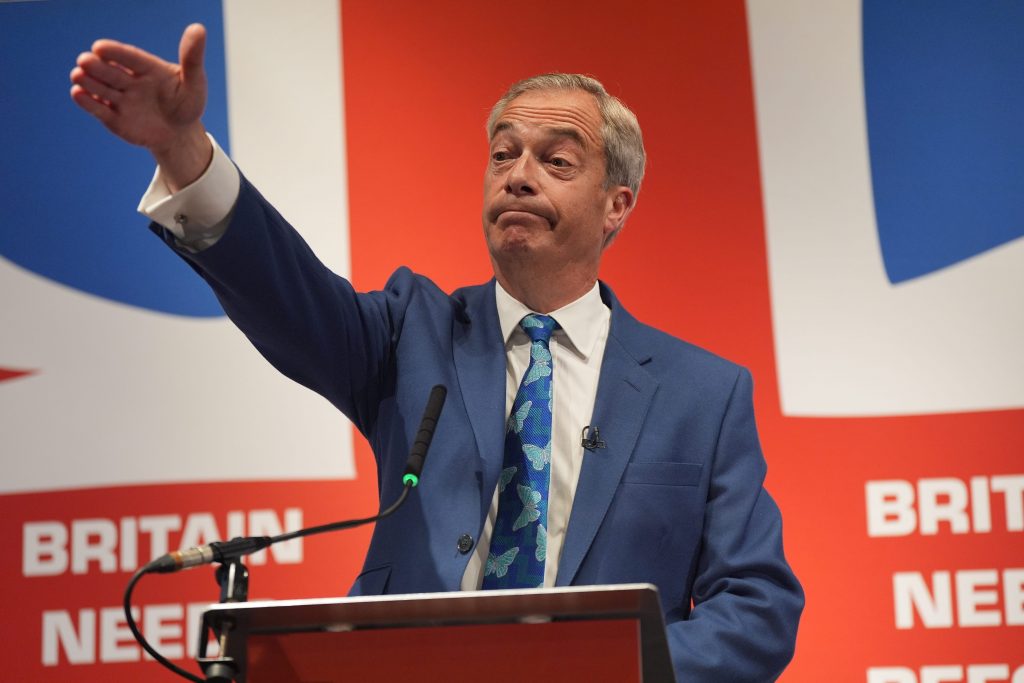
As many British pundits have noted, one of the shadow winners of the election was the right-wing populist party Reform UK. Despite the fact that they will have only five deputies in parliament, led by party leader Nigel Farage, who only got into parliament at the eighth attempt, Reform UK became the third political force in the UK by the number of votes gained.
The history of Reform UK is directly linked to the country’s exit from the European Union. In 2006-2009 and 2010-2016, Farage led the United Kingdom Independence Party (UKIP), and in 2019 he founded the Brexit Party. It was this party that evolved into Reform UK. Farage himself stepped down as its leader back in 2021: he then chose to return to journalism and became the host of GB News, a news channel with a right-wing political agenda.
Reform UK did not get into parliament in the 2019 election. However, it did gain its first mandate in 2024. Former Conservative Party deputy leader Lee Anderson switched to Reform UK after a scandal over his remarks about London Mayor Khan, who the then-Conservative leader said had been “taken over by Islamists”. The party’s honorary president himself, 60-year-old Nigel Farage, initially declined to run for the British parliament so he said he had decided to focus on the “huge global significance” of the US presidential election, in which he is campaigning for his friend Donald Trump. However, in early June, Nigel Farage said he had changed his mind. “I’ve changed my mind, I’ll have you know,” he said, adding that “something fundamentally wrong” had happened in British politics. Moreover, Farage noted that he will lead Reform UK for the next five years.
Farage’s return to politics has had a direct impact on the level of voter support for his party. Sensing the weakness of the Conservatives on the right wing, he made his move by stealing a significant part of the vote from the Tories. Skillfully playing on the anti-immigrant sentiments of part of the population and disillusionment with the Tories, the politician was able to significantly increase the popularity ratings of his party. Already in mid-June, according to the polling company YouGov, Reform UK for the first time overtook the Conservatives in popularity, dropping them to third place in the country. The party received the support of 19% of voters. Only 18% of voters would vote for the Conservatives in a parliamentary election. However, Farage’s personality traditionally evokes mixed emotions in society: he was already, in a tradition that began in 2019, doused with a milkshake during an election event, and then stones flew at him. This did not stop him, but only inflamed him. He was more active than any other key politician on social media during the campaign.
It must be said that Farage diversified his program. In addition to the anti-migrant theme, the party advocated tax cuts, health care reform, abandoning the move towards carbon neutrality and the country’s withdrawal from the European Commission on Human Rights. The party also proposed increasing defense spending from 2.3 percent of GDP to 3 percent a year and a new agreement on UK-EU relations after Brexit to limit Brussels’ influence over Northern Ireland’s affairs. These ideas, which Reform UK shares with most other European right-wing populist forces, formed the basis of the manifesto “Our Contract With You”. The party went to the polls with it, promising to fulfill the main points of the document in 100 days if it came to power.
The right-populists also have their own special position on Ukraine, which is very different from the official one. Farage is convinced that the Ukrainian authorities should start negotiations with Russia on a peaceful settlement of the conflict. At the same time, Reform UK does support continued aid to Kiev. “We would continue to give them money, but we need to convey to both sides that at some stage wars end either through negotiation or disaster. This conflict can go on for many years and there will be a terrible price to pay in terms of lives lost,” Farage said. At the same time, he admitted that the transition to peace talks is unlikely to happen quickly. “We have imposed sanctions against Russia, but they have gotten closer to the Chinese. A bloc of concern is emerging, because it is directed against us,” the politician said. He admitted that to end the conflict, Ukraine will have to give up some of the territories it considers its own. Meanwhile, the Conservatives, including former Tory prime ministers Boris Johnson and Liz Truss, were in favor of defeating Russia. It was not his sharpest statement on Ukraine. Another of his statements resonated widely. He suggested that the war was provoked by the West, which was pushing for EU and NATO enlargement.
For this statement, Faraj was subjected to derogatory criticism. Sunak said the Reform UK leader was endangering the kingdom and its allies with his words. Farage was also condemned by the head of the Interior Ministry and former foreign minister of the kingdom James Cleverly. The country’s former defense minister Ben Wallace dubbed him a “pub bore,” while the shadow defense minister in the Labour Party government, John Healey, found his comments “disgraceful.” He said Farage had “shown that he would rather lick Vladimir Putin’s boots than stand up for the people of Ukraine.” This, Healey said, makes him unfit for any political office in the UK, let alone leading a serious party in parliament. Farage later said he was not a supporter of Moscow, but refused to apologize for his words.
Eventually riding the right-wing populist wave, Reform UK won 14.4% of the popular vote, with one in seven voters casting a ballot for the party. It was Farage’s party that dealt the most significant blow to the Tories, taking a very large bite out of their electoral pie. In Farage’s opinion, Reform UK has now prepared the groundwork for the future in order to make a serious claim to power by the next election – in 2029.
The party was originally expected to win 13 seats, far more than recent opinion polls suggested. In the middle of the night of counting the votes, the prediction was lowered to five, but the broad support of the electorate is what pleased Farage the most. And even though, after all, the party only has five MPs (due to the peculiarities of the majoritarian system). This group, consisting of Nigel Farage, Lee Anderson, Rachard Tice, as well as the former chairman of the soccer club “Southampton” Rupert Lowe is a restless and noisy team, capable of raising “on the ears” the entire British Parliament and not give a quiet life to any of their competitors.
The end of the two-party system
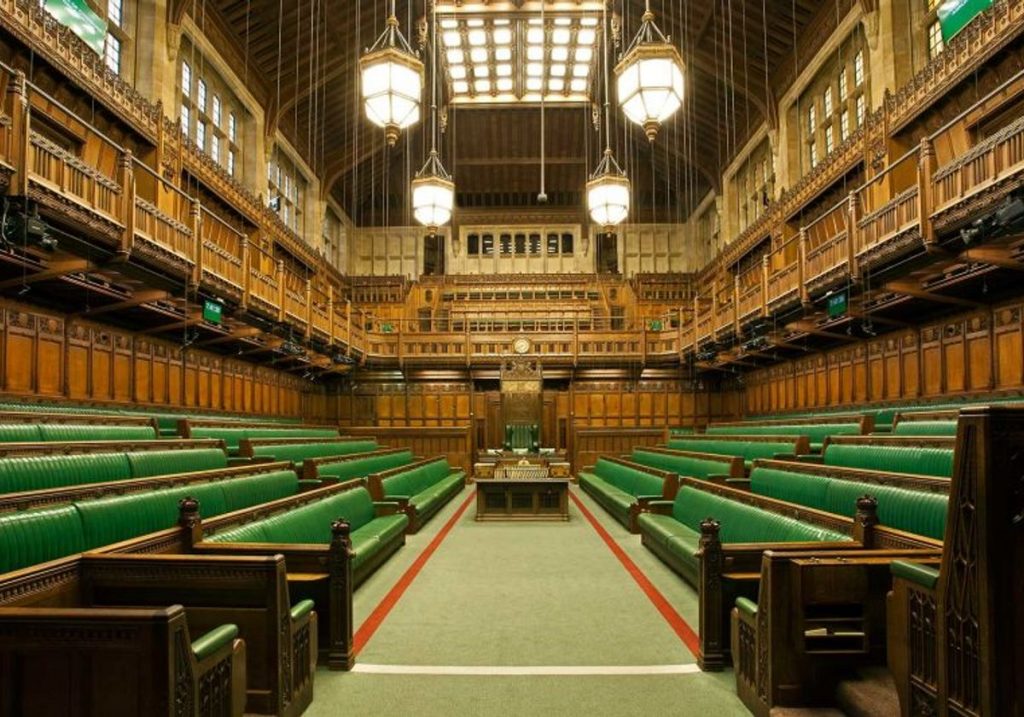
Despite the fact that the main confrontation in Britain is always reduced to the struggle between the Conservatives and Labor, these elections have transformed the parliament, replenishing it with so-called “small” parties, which turned out to be very influential. If back in the 1950s the two largest parties enjoyed the support of 90% of the electorate, now the combined share of Conservative and Labor supporters is less than 70%, with a tendency to decrease. So, these elections, if not finally buried the two-party system, they gave birth, maybe not to a three-party system, but definitely to a two-and-a-half-party political system of Great Britain.
And much credit for that goes to people like Ed Davey, leader of the Liberal Democrats. Sir Ed has quickly become famous during the current election campaign for a series of hilarious stunts he pulls as he travels around the country. His journey began when he fell off his surfboard several times at Lake Windemere in Cumbria to demonstrate the seriousness of the sewage crisis. While in the rural Welsh town of Knighton, to attract farmers, he cycled down a steep hill without putting his feet on the pedals. He bungee jumped, rode a slide, raced wheelbarrows, drove a tractor, built sand castles and more. As Davey himself stated, these stunts are an attempt to ensure that the Liberal Democrats are not overshadowed by either Labor or the Conservatives. And all of Davey’s stunts better help get the party’s message across to voters.
There have been some serious moments in all this playful and fun campaigning. This is a video segment where he showed how he cares for his disabled son. The fact is that he has been a caregiver for most of his life – first to his mother, who died at the age of 36 when he was a teenager, then to his grandmother and now to his son John. On becoming party leader in 2020, the politician vowed to become “the voice of carers” and “fight for investment in the National Health Service (NHS) and social care”. In an emotional campaign video, he says: “Looking at life through the eyes of my son, I couldn’t be more passionate about fixing the health system in this country.” He adds that despite “millions” of unpaid caregivers across the country, “the government has simply ignored them and not listened to them.”
Aside from social issues, the Liberal Democrats are keen to maintain the party’s pro-European image and are clamoring for a return to the EU’s single market, believing such a move would be an effective way to tackle many economic and social problems, from healthcare to agriculture. “Britain’s place is in the heart of Europe,” the LDP leader said. At the same time, the party does not deviate from the cross-party consensus on the Russian-Ukrainian war and even proposes to channel Moscow’s frozen assets to rebuild Ukraine.
This election campaign was the most successful for the Liberal Democrats in their history. The party won more than 70 seats and became the fourth political force in terms of votes cast with a result of 12.2%. In single-member constituencies that once belonged to David Cameron Theresa May and Boris Johnson, the Liberal Democrats “destroyed” four Conservative ministers. And Ed Davey himself won uncontested in his Kingston constituency by 17,000 votes. With their greatly increased representation in Parliament, the Liberal Democrats will want to raise the level of their political ambitions and try to give themselves a more important political role, rather than just Starmer’s running mates.
Another “small” political force, the Green Party of England and Wales, which won just one mandate at the last election, gained four this time with 6.7% of the vote. British “Greens” as well as their colleagues, the Liberal Democrats in their agenda fight for the implementation of the Paris Agreement and London’s leadership in the international fight against climate change. At the same time, with regard to the most acute migration problem, they take the softest position, advocating the liberalization of legislation in this area. The Greens are in solidarity with the Scots on the issue of Britain’s reunification with the EU.
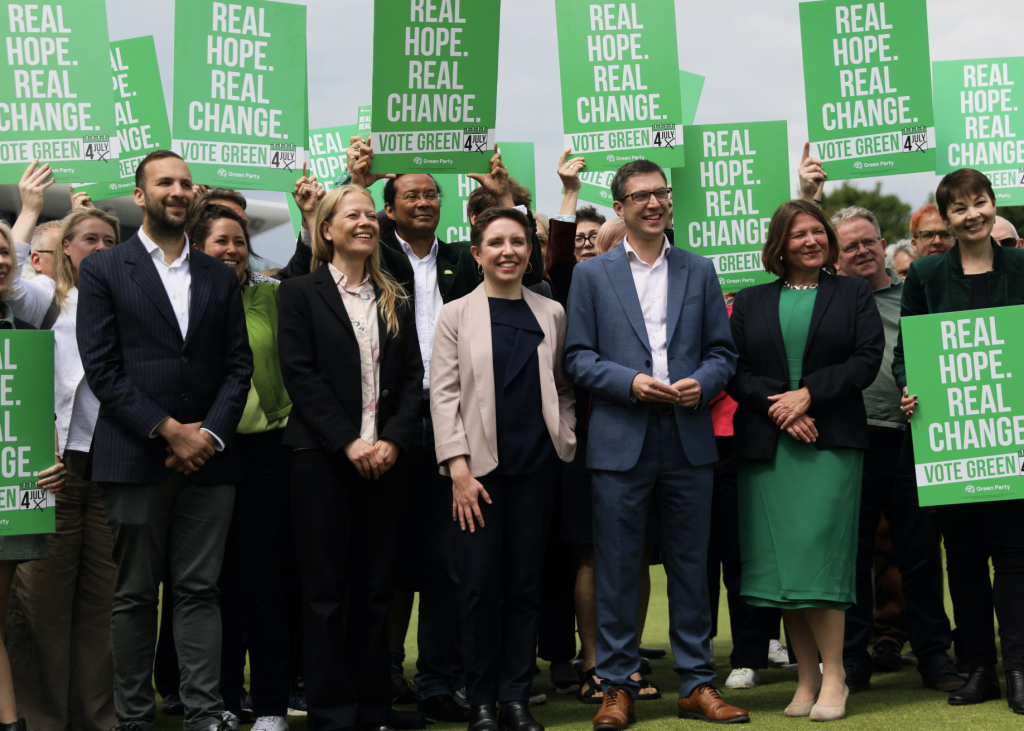
The Greens’ electoral strategy of working in four constituencies, where they concentrated maximum effort and resources, bore fruit. By retaining the Brighton constituency, they took one constituency away from Labor. Party co-chair Carla Denyer ousted shadow culture minister Tangam Debbonaire. The Greens also won two more rural constituencies, taking parliamentary seats away from the Conservatives. In one of them, another party co-chair, Adrian Ramsay, performed very convincingly, winning 42% of the vote.
The Greens’ success was no accident. In the local elections held on May 2, despite the fact that the main struggle, as always unfolded between the Conservatives and Labor, the Green Party increased its representation by 74 seats, gaining a total of 181 mandates. In 2024, they won more seats from the Conservatives than from Labor (32 vs. 31 respectively), and in 2023 they increased their representation at the expense of constituencies in the south, southeast and east of England, considered to be the fiefdom of the Tories. Capitalizing on their success in local elections, the Greens have “built muscle” and have become a force that may well compete with the Labor Party on the left in the future.
The British Conservatives are not the only major losers in the UK general election. The most bitter disappointment in this election awaited the Scottish National Party. The voters of Scotland sent them the same message as the voters of Great Britain sent the Conservatives. Out of 43 seats in the British Parliament they have 9 left, and the level of support for the party has fallen to an obscene 2.5%. The main political credo of the party – the fight for Scottish independence and return to European integration structures – seems to remain a line in its program. Scottish voters are tired of nationalists, and even sympathizing with some deputies in the districts, voting against them, they, above all, voted against the Scottish National Party.
Under the leadership of Alex Salmond and Nicola Sturgeon, the SNP has run Scotland’s devolved government since 2007 and has held the vast majority of Scottish seats in the House of Commons since 2015. However, the SNP’s once powerful ratings began to crumble after a series of scandals by its party leaders. In 2023, Sturgeon unexpectedly resigned as head of the devolved government. Of her political weight, one Labor Party candidate put it this way, “It used to be that SNP MPs could just put Nicola Sturgeon on a leaflet and they’d get a 10,000-vote majority.”
The fate of the SNP was further clouded when Sturgeon and her husband, former party leader Peter Murrell, were arrested weeks after her resignation in connection with a police investigation into party finances. The subsequent election of a new party leader led to a split and finally finished off the Scottish National Party. Humze Yousaf, who had led the party and government, also resigned unexpectedly after the collapse of his coalition government. He was then compared to former British Prime Minister Liz Truss, who lasted less than 50 days in office.
True, the Scottish First Minister led the government for more than a year (397 days), but he, like Truss, made bad decisions and those led to his resignation. In the former prime minister’s case it was the mini-budget, in Yousaf’s case it was the termination of his deal with the Greens. Without bright leaders and a clear program of action, the outcome was a natural one – an electoral disaster with the prospect of losing power in the Scottish parliamentary elections in 2026, when disillusionment with the party will be even greater. SNP leader John Swinney, who had only been in office for two months, apologized to his party colleagues who did not keep their seats, calling what happened a “massacre.” And as one of the losing candidates, Joan Cherry, put it, “… the ship of the SNP being hit has sunk”.
The big winner in Scotland was London’s sister party, the Scottish Labour Party, which broke the SNP’s party monopoly by taking 37 of the 57 Scottish seats at Westminster. And a lot of credit goes to Scottish Labour’s new leader Anas Sarwar for pulling the party out of oblivion and leading it to victory. As the campaign progressed, it was clear that Scottish Labor would be the ones to win. In nine of the 11 opinion polls conducted in Scotland since the election was announced, Scottish Labor has been ahead of the SNP. Sarwar believes their resounding result puts an end to the mistakes and incompetence of the ruling Scottish National Party and is a springboard for an even bigger victory. Scots will go to the polls for the Scottish Parliament in May 2026 – and Sarwar is now seen as a leading contender for the Scottish First Minister’s chair, which will end 19 years of pro-independence government.
The new UK parliament first met on July 9 to elect a speaker and take the oath of allegiance. And on the 17th, the king will address the MPs. And Keir Starmer, having formed a new cabinet, will soon begin to implement the slogans about “ending chaos”, “turning the page” and fulfill the British people’s demand for change.

